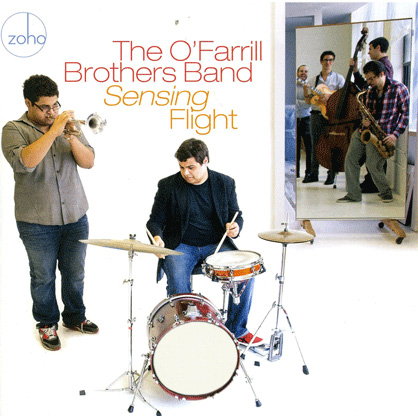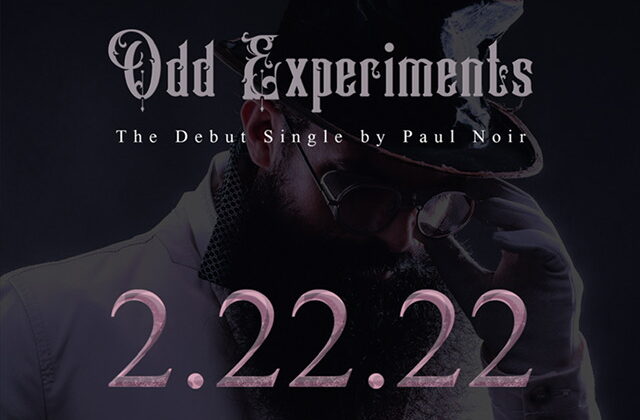Katie Bull is indescribable. But here goes the description.
Like vocalists Sheila Jordan, Bessie Smith, Nina Simone, Robert Johnson, Joni Mitchell, James Brown, Anita O’Day or Billie Holiday, Bull performs without compromise. Like them, she is original, passionate, distinctive, influential, fearless, outspoken and supremely talented. She lives life on her own terms, and like her predecessors, she speaks the unvarnished truth with knowledge, anger, wonder, regret, admiration, disappointment, joy, sadness, and liberation of the soul. With wild unpredictability, Bull departs from those singers, who remained mostly within the lyrical vocalist/accompanist tradition, though Jordan can prefer singing solely with bass and Simone, self-accompaniment on piano. Instead, Bull, who absorbed multiple artistic disciplines throughout her lifetime, merges jazz with song and the engaging delivery of poetry, a style fallen into disuse since the 1950’s. Indeed, Bull writes her own poetry, and at times she blurs the lines between poetry forcefully delivered in cadence and jazz delivered with poetic insights. In any case, Bull, presenting a style of her own, mostly abandons the melodic confines of a song and engages in purely in-the-moment vocal improvisation. That is, Bull’s listeners perceive that each performance is a unique experience, never to be repeated, even as she recites/sings the same words a second or third time…or countless times.
Even a standard on All Hot Bodies Radiate, “If I Loved You,” sung at first as a solo, evolves into her own subjunctive wondering about the proper behavior, the proper degree of intimacy, in the presence of life’s ephemerality. Converted thematically, the medley leads to the instrumental intensity that sets up appropriately forceful solos from tenor saxophonist Jeff Lederer, bassist Joe Fonda and pianist Landon Knoblock—simmering contrasts that eventually boil over, revealing with McCoy Tyner-like minor chords Bull’s passion underlying her song.
“If I Love You/What If?” supports her album’s unified basis about the nature of love. However, the excitement of Bull’s adventures and talent—her insightfulness, her brave approaches, her wackiness—occurs in her musically divergent but nevertheless thematically connected original compositions. Fresh, in-your-face lyrics unlike any from The Great American songbook grab the listener’s attention and use dramatic presence to retain interest, like this quote from “KoKo’s Can-Do Blues”: “A big ole Mack truck is in front of your face, dear / It’s time for a new foundation.” That song contains many of Bull’s characteristic delights beyond her unconventional lyrics, such as singing as exclamation, a broad vocal range compressed within a single word, onomatopoetic growling, unexpected gliding into swing (and then back into free rhythm) pitchless delivery of verse over instrumental accompaniment, exchanges of in-the-heat-of-the-performance sounds with the instrumentalists, quarter-tone wavering, narrative deliveries for heightening interest, breathless whispers, Arabic and/or plainsong-like chanting, atmospheric reverberation, or just wordplay as Bull toys with the variations of a single word’s sound, such as “witch” or “what,” and how their consonants’ repetition in differing methods of expression can add to a song’s meaning.
So, Bull’s contributions to originality in song-writing are valuable, as her unconventional considerations in new songs, presented the first time in All Hot Bodies Radiate, engage listeners’ thoughts and unsettled feelings, as did the lyrics of, say, Oscar Brown Jr., Abel Meeropol or Laura Nyro the first time their songs were heard. Bull continues her investigations into the nature of love, as she had on previous albums. However, she also describes the primacy of nature—though both themes are bound to one another—as the album’s title suggests in its reference to climate change from Pulitzer Prize-winning environmental journalist Elizabeth Kolbert.
Of course, Bull expands that [radiant] meaning to include personal relationships. And so, in “Love Song for Apollo”—Apollo, of course, being the god not only of sun and light, but also of music and poetry—Bull sings over the deceptive lightness of a slow jazz waltz about the forces created by all of those characteristics, but most especially about imploring Cupid to “shoot your heart out.” Related but different is the love of nature in “The Sea Is Full of Song,” which begins with self-call-and-response, that being a capture of Bull’s sonic impressions from the shore with minimal lyrics. Or “Torch Song to the Sun” implores the sun, with gorgeous shimmering chord changes: “Please don’t set so soon.” The song builds her personal connection to the sun, to say the least, as she sings: “You burn my skin.” And: “You cook my eyes / With just one stare / I’m on my knees / Won’t you take me there please?” The final solar plea? “I would travel infinitely to be your wife.” Love of nature indeed.
One is struck not only by Bull’s versatility, as each track is wildly distinctive and never repetitious, but also by her force of conviction, that conviction being the basis for her unrestrained delivery. While “Some Perfume Home,” brooding and evocative in its minor key, succeeds as the result of Bull’s leisurely, exquisitely shaped long tones—not to mention from her high-pitched, avian-like interplay with Lederer’s soprano sax—“I Guess This Isn’t Kansas Anymore,” just as brooding, and I dare say haunting, proves that Bull absorbs multiple influences like alternative rock and readapts them to address her own muse. Listening to Bull’s offshoots of Wizard of Oz inspirations, with their eerie narrow melodic range suggesting trudging ennui, elucidates German critics’ mentions of her music’s similarities to Kurt Weill. “Ding Dong the Witch Is Dead” takes the listener on a journey from resonating single-note introductory chanting into exclamatory singing, as though Bull were astounded by each phrase’s revelations, as she alters melody, scats, ululates, ascends octaves, and stutters.
Of special note are the total immersion of the musicians in the performances and their synaptic spontaneity, as if an unexpected lightning bolt flashes through the group and sets one moment, and then more, afire. Lederer seems always ready to announce his presence and pounce with not only crazily free, but also appropriately responsive thoughts, such as his blatant raspy overtones on “Venus on a Train” or his imitations of Bull’s warbling on “Some Perfume Home.” Fonda’s contributions on bass are just as astounding as Bull’s words, such as his glissando introduction of “KoKo’s Can-Do Blues” or his sudden move on his own from solid quarter notes to pulsating double time at 2:35 of “The Crazy Poet Song.” Schuller takes over the balance of “The Sea Is Full of Song,” rising the sea level from rippling calmness, initially unobtrusive, to plangent agitation, the volume increasing with the intensity before the fadeout of song and album. Knoblock varies sonic reinforcement from the jump-rhythm accompaniment of “Venus on a Train,” danceable and fun, to his atmospheric electronics on “Torch Song to the Sun” to subdued three-four recital-like back-up without drums and bass on “Rapture for The David.”
All Hot Bodies Radiate captures Bull’s aesthetic of combining form with freedom, as she uses existing songs, mythologies (for new mythologies are being created every day), rhythms, idioms and musical genres as departure points for her crazily poetic excursions into highly personal, original and joltingly surprising themes. This album contains in one comprehensive package all of Bull’s eccentricities, inimitable talent, passionately expressed themes and successful group interactivity—the culmination to which her previous albums have been building.
2015
Artist’s site: www.katiebull.com










